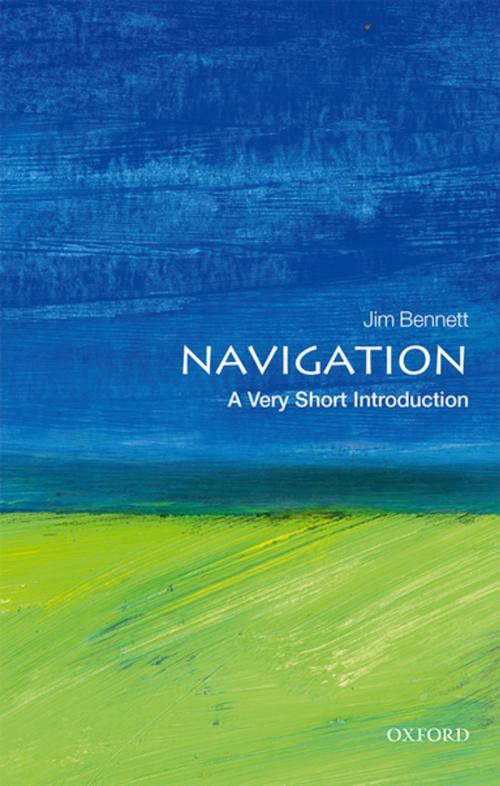Navigation: A Very Short Introduction
Nonfiction, History, Military, Naval, Science & Nature, Technology, Science| Author: | Jim Bennett | ISBN: | 9780191053450 |
| Publisher: | OUP Oxford | Publication: | February 10, 2017 |
| Imprint: | OUP Oxford | Language: | English |
| Author: | Jim Bennett |
| ISBN: | 9780191053450 |
| Publisher: | OUP Oxford |
| Publication: | February 10, 2017 |
| Imprint: | OUP Oxford |
| Language: | English |
From the Bronze Age mariners of the Mediterranean to contemporary sailors using satellite-based technologies, the history of navigation at sea, the art of finding a position and setting a course, is fascinating. The scientific and technological developments that have enabled accurate measurements of position were central to exploration, trade, and the opening up of new continents, and the resulting journeys taken under their influence have had a profound influence on world history. In this Very Short Introduction Jim Bennett looks at the history of navigation, starting with the distinctive cultures of navigation that are defined geographically - the Mediterranean Sea, and the Pacific, Indian, and Atlantic Oceans. He shows how the adoption of mathematical methods, the use of instruments, the writing of textbooks and the publication of charts all combined to create a more standardised practice. Methods such as longitude-finding by chronometer and lunar distance were complemented by the routine business of recording courses and reckoning position 'by account'. Bennett also introduces the incredible array of instruments relied on by sailors, from astrolabes, sextants, and chronometers, to our more modern radio receivers, electronic equipment, and charts, and highlights the crucial role played by the individual qualities of endeavour and resourcefulness from mathematicians, scientists, and seamen in finding their way at sea. The story of navigation combines the societal, the technical, and the human, and it was vital for shaping the modern world. ABOUT THE SERIES: The Very Short Introductions series from Oxford University Press contains hundreds of titles in almost every subject area. These pocket-sized books are the perfect way to get ahead in a new subject quickly. Our expert authors combine facts, analysis, perspective, new ideas, and enthusiasm to make interesting and challenging topics highly readable.
From the Bronze Age mariners of the Mediterranean to contemporary sailors using satellite-based technologies, the history of navigation at sea, the art of finding a position and setting a course, is fascinating. The scientific and technological developments that have enabled accurate measurements of position were central to exploration, trade, and the opening up of new continents, and the resulting journeys taken under their influence have had a profound influence on world history. In this Very Short Introduction Jim Bennett looks at the history of navigation, starting with the distinctive cultures of navigation that are defined geographically - the Mediterranean Sea, and the Pacific, Indian, and Atlantic Oceans. He shows how the adoption of mathematical methods, the use of instruments, the writing of textbooks and the publication of charts all combined to create a more standardised practice. Methods such as longitude-finding by chronometer and lunar distance were complemented by the routine business of recording courses and reckoning position 'by account'. Bennett also introduces the incredible array of instruments relied on by sailors, from astrolabes, sextants, and chronometers, to our more modern radio receivers, electronic equipment, and charts, and highlights the crucial role played by the individual qualities of endeavour and resourcefulness from mathematicians, scientists, and seamen in finding their way at sea. The story of navigation combines the societal, the technical, and the human, and it was vital for shaping the modern world. ABOUT THE SERIES: The Very Short Introductions series from Oxford University Press contains hundreds of titles in almost every subject area. These pocket-sized books are the perfect way to get ahead in a new subject quickly. Our expert authors combine facts, analysis, perspective, new ideas, and enthusiasm to make interesting and challenging topics highly readable.















